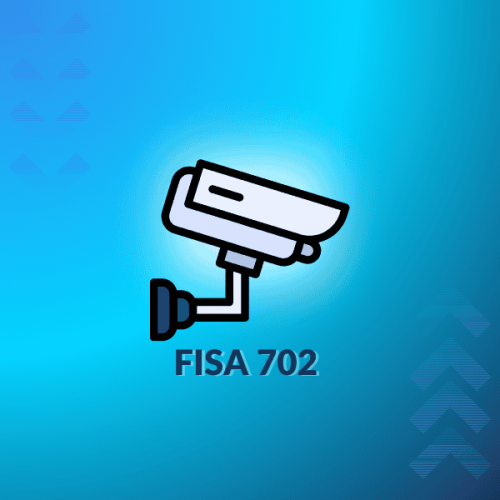UPDATED: FISA Section 702 has been pulled after intense backlash from the general public. Read more here.
Today, US lawmakers are set to decide on a bill called the FISA “Reform” Bill, officially known as the FISA Reform and Reauthorization Act of 2023 (FRRA). This bill could greatly increase the government’s ability to spy on both Americans and people from other countries.
Privacy-first companies such as Mailfence, Mozilla, and the Tor Project are asking policymakers not to make these spying measures permanent under FISA 702 Surveillance.
In a nutshell, this bill allows US intelligence agencies to circumvent the Constitution and monitor their own citizen’s communications without the need for a warrant. While FISA technically limits the government to spying on foreigners, this actually results in a lot of data from Americans being collected by the NSA and used by the FBI without the right approvals.
It is our opinion that this needs to stop. FISA Section 702 should not be allowed to continue.
Here below is the joint letter initiated by Tuta, which Mailfence and other privacy-focused companies co-signed.
Open Letter Against FISA Section 702
Dear Members of the House of Representatives,
We, a group of companies, builders, and providers of critical internet-based products and services, write to you today in support of legislative proposals, such as the Government Surveillance Reform Act, that would effectively address bipartisan and bicameral concerns around consistent surveillance overreach. We also applaud the Protect Liberty and End Warrantless Surveillance Act, which takes key steps forward in reform, and encourage you to strengthen the bill further.
Additionally, current efforts to reauthorize Section 702 until April through the National Defense Authorization Act would amount to rubber-stamping surveillance abuses, and we strongly oppose such efforts.
As providers of digital products and services, both nonprofit and for-profit, we depend on the trust of our customers to sustain digital communities. If widely-documented abuses go unaddressed in legislation, individuals will remain concerned that their most intimate information could be collected by intelligence agencies without accountability, thus deteriorating the economic and social power of the Internet.
While the current legislative debate may have been sparked by the imminent expiration of Section 702 of FISA, the widely-documented surveillance abuses highlighted by policy experts and members of Congress across the political spectrum would continue under narrow 702 “fixes,” especially ones that only cosmetically change FISA. For that very reason, we are particularly concerned by reauthorization proposals by the House and Senate Intelligence Committees that would only cement overbroad surveillance.
A true reform proposal will need to address similar ways that the government surveils Americans without adequate oversight and accountability, including warrantless purchases of Americans’ information from data brokers, narrowing the scope of surveillance in line with the President’s own EO 14086, increasing the ability of Americans to stand up for their rights in court, and, optimally, parallel reforms of EO 12333. These provisions would ensure that surveillance overreach does not simply continue the day after a reform bill passes, but under a slightly different authority. In other words, Congress should take this “functional” approach to surveillance reform by addressing end results.
The Protect Liberty and End Warrantless Surveillance Act, while not containing all of these provisions, would take critical steps forward in shielding Americans from overbroad surveillance. Most notably, it would protect Americans from warrantless data broker purchases and would create an ironclad warrant requirement for 702 surveillance of US persons, among other provisions. Lawmakers should consider strengthening the bill, for example by increasing transparency and accountability measures.
Of particular importance in both bills is inserting language codifying the scope of surveillance proposed by the President’s own EO 14086 to tether surveillance of non-US persons to basic guardrails.
We remain available to discuss the impact of reform proposals on the economy and on the privacy of people online as you continue your thoughtful work.
Signed,
Mozilla
Wikimedia Foundation
Foundation for American Innovation
Proton
DuckDuckGo
Nord Security
The Tor Project
WebPros
Quilibrium, Inc.
Mailfence
Tuta
Superbloom (previously known as Simply Secure)
Gate 15
Nitrokey
Action Network & Action Builder
Malloc
Efani Secure Mobile
Skiff



